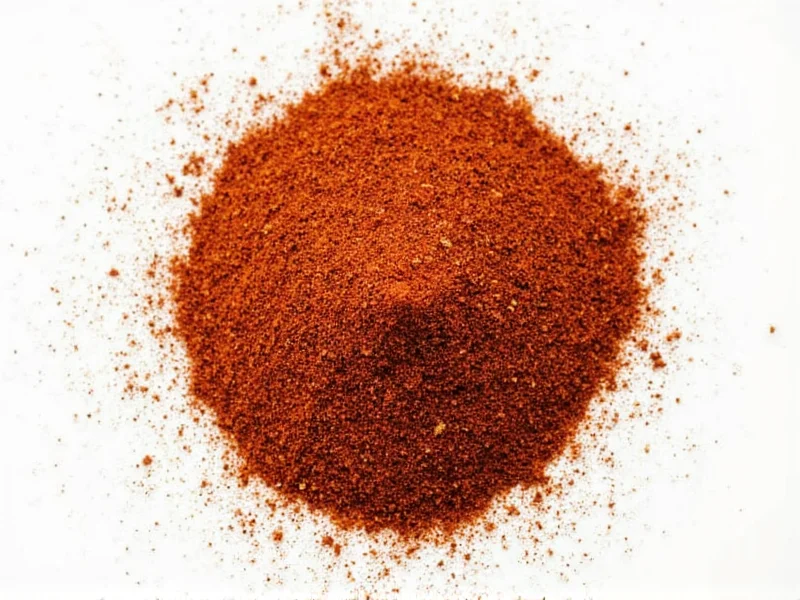Jerk seasoning represents one of the Caribbean's most iconic culinary contributions, with roots tracing back to Jamaica's indigenous Taino people and African Maroon communities. This distinctive spice mixture transforms ordinary proteins into extraordinary dishes through its carefully balanced combination of heat, sweetness, and earthy warmth.
Historical Origins of Jerk Seasoning
The term "jerk" likely derives from the Spanish word "charqui," meaning dried meat, which evolved into the English "jerky." However, jerk seasoning as we know it today developed through cultural fusion in 17th century Jamaica. When West African people escaped slavery and formed communities in Jamaica's mountainous interior (becoming known as Maroons), they combined their cooking techniques with indigenous Taino methods.
These communities developed jerk cooking as both a preservation technique and flavor enhancement method. They would marinate meats in the spice blend, then slowly smoke them over pimento wood (allspice trees) in covered pits. This slow-cooking method tenderized tougher cuts of meat while infusing deep, complex flavors.
Core Ingredients in Authentic Jerk Seasoning
Traditional jerk seasoning contains specific components that create its unmistakable flavor profile. While recipes vary by family and region, these elements remain consistent:
| Essential Ingredient | Flavor Contribution | Traditional Preparation |
|---|---|---|
| Allspice (pimento) | Warm, complex notes of cinnamon, nutmeg, and clove | Whole berries toasted and ground fresh |
| Scotch bonnet peppers | Intense heat with tropical fruit undertones | Used fresh, seeds often included for maximum heat |
| Thyme | Earthy, herbal balance | Fresh preferred, but dried works in dry rubs |
| Garlic and onion | Savory depth and sweetness | Freshly minced or pureed |
| Ginger | Warm, bright spiciness | Freshly grated |
Authentic Jamaican jerk seasoning recipes always feature allspice as the dominant flavor, which makes sense given Jamaica produces 90% of the world's allspice. The Scotch bonnet pepper provides significant heat but also distinctive fruity notes that distinguish jerk from other spicy rubs.
Dry Rub vs. Wet Marinade: Understanding Jerk Preparation
Many people wonder about the difference between jerk seasoning and jerk marinade. The distinction matters for authentic preparation:
- Dry jerk rub contains only ground spices and is applied directly to meat. This version travels well and has longer shelf life.
- Wet jerk marinade includes fresh ingredients like scallions, garlic, ginger, and citrus juices along with the spices. This traditional preparation method penetrates deeper into the meat.
For the most authentic experience, Jamaican cooks prefer the wet marinade version, allowing proteins to soak for at least 4 hours (preferably overnight) before cooking. The liquid components help the spices penetrate while adding moisture.
Regional Variations Across the Caribbean
While Jamaica claims jerk seasoning as its national culinary treasure, neighboring islands have developed their own interpretations:
- Jamaica: The original, featuring pronounced allspice and Scotch bonnet heat
- Trinidad: Incorporates more curry elements and tamarind for tang
- Haiti: Uses epis (a green seasoning base) with less emphasis on allspice
- Cuba: Adjoins citrus elements more prominently, particularly sour orange
These regional differences reflect each island's unique cultural influences and available ingredients, while maintaining the essential jerk concept of bold, spicy flavoring.
Modern Applications Beyond Traditional Jerk Chicken
Contemporary chefs have expanded jerk seasoning's applications far beyond its traditional use with chicken and pork. Creative culinary professionals now use authentic jerk seasoning in unexpected ways:
- As a rub for grilled pineapple or mango
- Blended into mayonnaise for sandwiches and burgers
- Stirred into black beans or rice dishes
- Used to flavor roasted nuts
- Infused into cocktail syrups for spicy-sweet drinks
When adapting jerk seasoning for non-traditional uses, consider reducing the heat level by removing some Scotch bonnet seeds while maintaining the essential allspice foundation that defines authentic jerk flavor.
Creating Your Own Authentic Jerk Seasoning
For those seeking to make traditional Jamaican jerk seasoning at home, follow these guidelines for best results:
- Start with freshly ground allspice berries rather than pre-ground powder
- Use ripe red Scotch bonnets for maximum flavor (wear gloves when handling)
- Include fresh thyme sprigs rather than dried for brighter herbal notes
- Add a splash of pimento dram (allspice liqueur) to wet marinades
- Allow meats to marinate at least 4 hours for proper flavor penetration
Remember that authentic jerk cooking traditionally involves slow smoking over pimento wood, which imparts additional allspice notes. While most home cooks use grills or ovens, adding a few allspice berries to smoking wood chips can approximate this traditional method.
Cultural Significance of Jerk Cooking
Jerk isn't merely a seasoning—it represents Jamaica's cultural resilience and culinary innovation. The cooking method developed as a practical solution for preservation that evolved into a celebrated culinary tradition. Today, jerk centers throughout Jamaica, particularly in Portland parish, maintain traditional preparation methods while introducing the world to authentic flavors.
The annual Blue Mountain Jerk Festival celebrates this heritage, featuring competitions for the best jerk preparation using time-honored techniques. This cultural importance explains why Jamaicans fiercely protect the authenticity of jerk cooking methods and ingredients.
Where to Experience Authentic Jerk Seasoning
For those seeking the genuine article, certain regions in Jamaica have earned reputations for exceptional jerk preparation. Boston Bay in Portland parish is widely considered the jerk capital of Jamaica, with numerous roadside stands using methods unchanged for generations. These establishments typically cook over pimento wood in open pits, producing the smoky, complex flavor profile that defines authentic jerk.
When evaluating jerk seasoning products outside Jamaica, look for those that prioritize allspice as the primary ingredient rather than just heat. Many commercial versions overemphasize the Scotch bonnet component while neglecting the essential allspice foundation that defines authentic jerk flavor.











 浙公网安备
33010002000092号
浙公网安备
33010002000092号 浙B2-20120091-4
浙B2-20120091-4